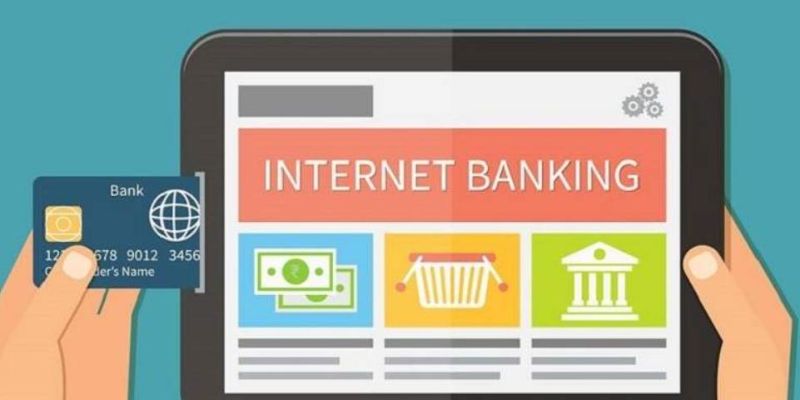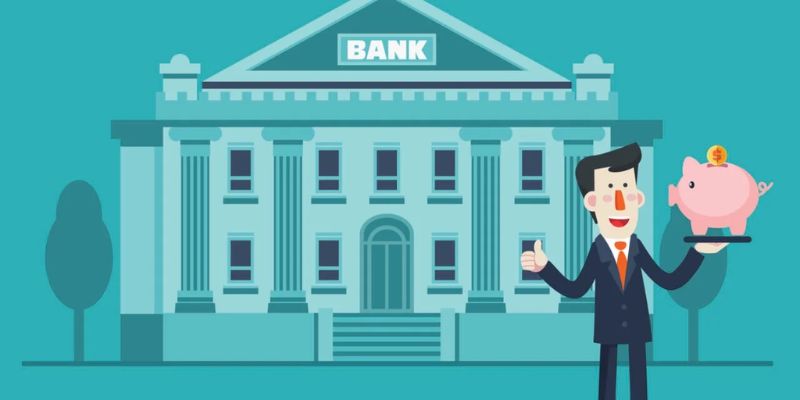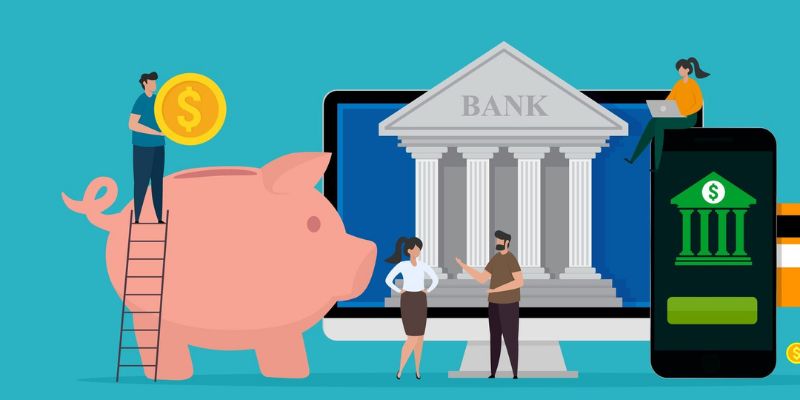Online banking security is your front line in the battle to protect your hard-earned cash from digital thieves. Gone are the days when a sturdy lock on your piggy bank was enough. Now, cyber crooks lurk behind screens, ready to pounce on any slip-up. But fear not! With the right know-how, you can turn your online banking fortress into an impenetrable haven. Keep reading as we arm you with the intel to recognize the sly tactics of fraudsters and the robust defenses you can implement to send hackers packing. Let’s dig into the strategies that will secure your digital dollars and keep your financial future in check.
Understanding Online Banking Threats and Protections
The Evolving Landscape of Cybersecurity for Digital Banking
Our bank accounts are now just a click away. But with ease comes risk. The digital world’s bad guys never rest. They hunt for ways to get our money. Cybersecurity for digital banking fights these foes. It safeguards your cash, your identity, and your peace of mind.
Protecting a bank account online is like guarding a fort. Strong walls – your bank’s security measures – keep out most dangers. But attackers still try to find ways in. Two-factor authentication acts like the fort’s drawbridge. It’s an extra shield, making sure it’s really you trying to enter. Use it whenever you can.
Encryption in banking wraps your data in a secret code. It travels hidden, so spies can’t grab it. This is crucial when you bank online. Bad guys are always sneaking around, trying to crack codes. Banks stay one step ahead, always updating their secrets.
Identifying and Combating Online Banking Frauds
Let’s talk about online banking threats. They come in many forms—some wear masks like phishing scams. Here, crooks trick you to spill your banking secrets. They pretend to be your bank, or a company you trust. Don’t fall for this. Always check who really sent that email or message.
Financial malware is like a hidden bug in your phone or computer. It snoops on you, waiting to snatch your bank info. Defend your devices with anti-virus tools. They hunt for these bugs and crush them before they can do harm.
We can prevent account hacking by keeping our guard up. Create tricky passwords, tough ones that are hard to guess. Use a mix of letters, numbers, and symbols. Change them often, and never share them.
Remember, using a VPN for banking transactions is a smart move. It hides your steps online, like wearing a cloak of invisibility. It’s harder for thieves to follow you and steal your info.
You also want to be like a detective. Monitor your bank account regularly. Look for clues of unusual activity. If something looks off, tell your bank quick.
Cybersecurity for digital banking is a race. The bad guys build a ladder; the good guys build a higher wall. So, keep up with the latest secure internet banking tips. Listen to your bank’s advice and update your safety habits. Together, we can keep your digital dollars safe.

Implementing Strong Defenses in Your Online Banking Habits
The Role of Two-Factor Authentication and Encryption
Two-factor authentication and encryption are like secret handshakes that keep your bank safe. They work together to protect your online money moves. Think of two-factor authentication (2FA) as a double check. When you log in, you use your password and a second step. It could be a code sent to your phone, or a thumbprint. This second step makes sure it’s really you trying to get into your account.
Encryption is a super-secret code that scrambles your info. It turns your private details into a jumble of letters and numbers. This means when you send your info over the internet, no one can read it unless they have the key. It’s like passing notes in class that only your friend can read.
Now let’s dig in! Online banking threats are real. People out there make programs to steal your money. They’re called financial malware. That’s where two-factor authentication and encryption in banking step in. They’re like your money’s bodyguards.
Imagine you’re using a secret tunnel to get to your bank vault. That’s encryption. Even if someone finds the tunnel, they can’t get in without the secret password. And 2FA? That’s like a guard asking for a password and then checking if you know a secret handshake. These two things together make a big difference in keeping your account safe.
Strategies to Detect Unusual Banking Activity and Prevent Account Hacking
Staying safe is also about watching for odd stuff. Let’s talk about how to detect unusual banking activity and fight account hacking. First up, always look at your bank statements. Check them for charges you don’t know. Seeing something odd? Report it fast. Banks can help stop more trouble before it starts.
Next, use strong password strategies. Make passwords like a tricky puzzle. Mix in letters, numbers, and symbols. Avoid using your birthday or your pet’s name. It’s too easy for hackers to guess. Change your passwords often, too. It’s like switching locks on your doors now and then.
Then there’s phishing scams prevention. Phishing is when bad folks trick you into giving away your info. They might send emails that look like they’re from your bank, but they’re not. They want your passwords and other secrets. Always double-check where emails come from. Never click on links from strangers.
Remember, your bank’s security measures are your friends. They want to help keep your money safe. Use the tools they give you. That includes anti-virus programs to keep nasty software away. It’s like making sure your house is clean so you don’t get sick.
Keep your banking software up to date. Think about it like changing the batteries in a smoke alarm. You want everything working right to protect you.
Be smart with your banking. Monitor your bank account regularly. Use secure login procedures. And don’t forget, using secure internet networks is key. If you’re on a public Wi-Fi, don’t do your banking. Your private info could leak out.
By using these defenses, like a shield and a lookout, you’re doing a ton to keep your money safe in this wild world of online banking. Keep these tips in mind and stay on guard!

Preventative Measures Against Financial Cyber Threats
Techniques to Thwart Phishing Scams and Safeguard Personal Banking Information
Phishing scams trick you. They ask for your bank details. Don’t share them. Banks never ask for your password or PIN through email or phone. If you get a strange email, check with your bank first. Use separate emails for banking and other stuff. This keeps your bank account safe if another email gets hacked.
Two-factor authentication helps a lot. It adds an extra step to logging in. You need something you know and something you have. Like a password and a code sent to your phone. This makes it harder for bad guys to get into your account.
Tips to stay safe? Use long and unique passwords. Mix letters, numbers, and symbols. Change them often. Don’t use the same password for different accounts. If one gets hacked, others stay safe.
Be smart when you bank online. Look for the lock icon in your web browser. This means your information is encrypted. Encrypted information is scrambled into codes. So, even if someone gets it, they can’t read it. Secure websites start with “https” not just “http”. Check for this every time you bank online.
Importance of Updating Security Software and Using Anti-Virus for Financial Data
You need to keep your devices safe. Use anti-virus software. It finds and stops malware which can steal your information. Malware is a kind of software that can harm your computer. Malware includes viruses, worms, and Trojans. They can get into your system and mess things up without you knowing.
Update your computer and phone often. Software companies send out updates. These updates fix security problems. When your device tells you an update is ready, do it right away. This keeps your banking safe.
Your firewall is like a guard. It checks data coming to and from your device. A good firewall stops hackers from sneaking in. It doesn’t let bad data through. You need this to keep your personal banking information safe.
Bank safely on your phone too. Download banking apps only from official stores like App Store or Google Play. Some apps outside these stores can be traps. They can steal your login details.
Remember, staying safe online is a daily job. Check your bank account often. This helps you spot any weird activity. If you see something odd, tell your bank right away. They can help fix the problem. Make sure you’re using a secure connection. Public Wi-Fi is not safe for banking. Use your home Wi-Fi or data plan instead.
Staying secure while banking online is not hard. It’s about being aware and taking the right steps. Use these tips, and you protect your digital dollars. Always keep learning about new ways to stay safe. Because cybersecurity is always changing.

Advanced Security Protocols for Secure Online Transactions
Advancements in Biometric Security and Firewall Protection for Online Banking
Online banking must be safe for everyone. Banks use cutting-edge tech to do this. One way is biometric security. It uses your body’s unique traits to check it’s really you. Think of it like a special handshake that only your body knows. This can be fingerprints, face recognition or even your voice. It’s like having a superhero lock on your account!
Cyber thieves are sneaky. But firewalls act like a huge wall to keep them out. They check data coming in and out of the bank’s network. If something looks fishy, the firewall stops it from getting in. This keeps your money safe from hackers trying to sneak through.
Regulatory Compliance and Best Practices for Financial Institutions and Users
Banks have rules to follow for cybersecurity. This is called regulatory compliance. This means they must do certain things to protect our information. It’s like a set of rules in a game that everyone must play by. The goal is to keep our digital dollars safe.
As users, we need to do our part too. We must create strong passwords—think of them as secret codes that guard our treasure. It’s also key to update our banking apps and software. Think about it like putting on the latest armor to protect against new threats. And always, always watch out for weird emails or texts that want your private bank info. These are often traps set by cyber crooks, trying to sneak into your accounts.
Remember, protecting your online banking is a team effort. Banks have their security measures, and we must follow best practices. It’s like having the best guards and being the smartest castle owner. Together, we make sure our digital treasure stays right where it should be.
We’ve covered a lot about keeping your money safe online in this post. We talked about how cyber threats evolve and how you can fight banking frauds. I showed you how two-factor authentication and encryption help protect your cash. Remember to watch for odd account activity to stop hackers in their tracks.
I also shared tips to dodge phishing tricks and to keep your personal bank info secure. It’s key to keep your security software fresh and use anti-virus tools. We can’t forget about the latest in biometric security and how firewalls block bad guys. Plus, banks and we both must follow certain rules to stay safe.
Taking these steps cuts the risk of losing your money to online thieves. Always be alert and protect your banking details like a pro. Stay safe out there!
Q&A :
How can I enhance security when using online banking?
Enhancing your online banking security involves implementing a series of best practices. Always use strong, unique passwords for your banking accounts and consider using a password manager to keep track of them. Enable two-factor authentication for an added layer of security, and stay vigilant for phishing attempts by not clicking on suspicious emails or links. Additionally, ensure your computer and mobile devices have the latest security updates and antivirus software installed.
What are the most common threats to online banking security?
The most common threats to online banking security include phishing scams, where attackers attempt to trick you into revealing sensitive information; malware, which is malicious software designed to harm your computer or steal your data; man-in-the-middle attacks, where attackers intercept communication between you and the bank; and identity theft, where criminals use your personal information to commit fraud.
What should I do if I suspect my online banking account has been compromised?
If you suspect that your online banking account has been compromised, act immediately. Contact your bank to report the suspected breach and follow their instructions. Change your online banking password and any other passwords that may have been compromised. Monitor your bank statements closely for any unauthorized transactions and consider setting up alerts for unusual activity.
Are mobile banking apps safe to use?
Mobile banking apps can be safe to use if they are designed with stringent security measures in place by reputable financial institutions. However, it is essential to download apps only from official app stores, keep your apps updated, and avoid using public Wi-Fi when conducting transactions. Always use a secure connection and have a strong passcode on your mobile device to prevent unauthorized access.
How does encryption protect my online banking information?
Encryption is a security measure that converts your sensitive online banking information into a code to prevent unauthorized access. It protects your data as it travels over the internet, ensuring that even if intercepted by cybercriminals, the information remains unreadable and secure. Encryption technologies such as SSL (Secure Socket Layer) are commonly used by banks to safeguard user data during online transactions.

